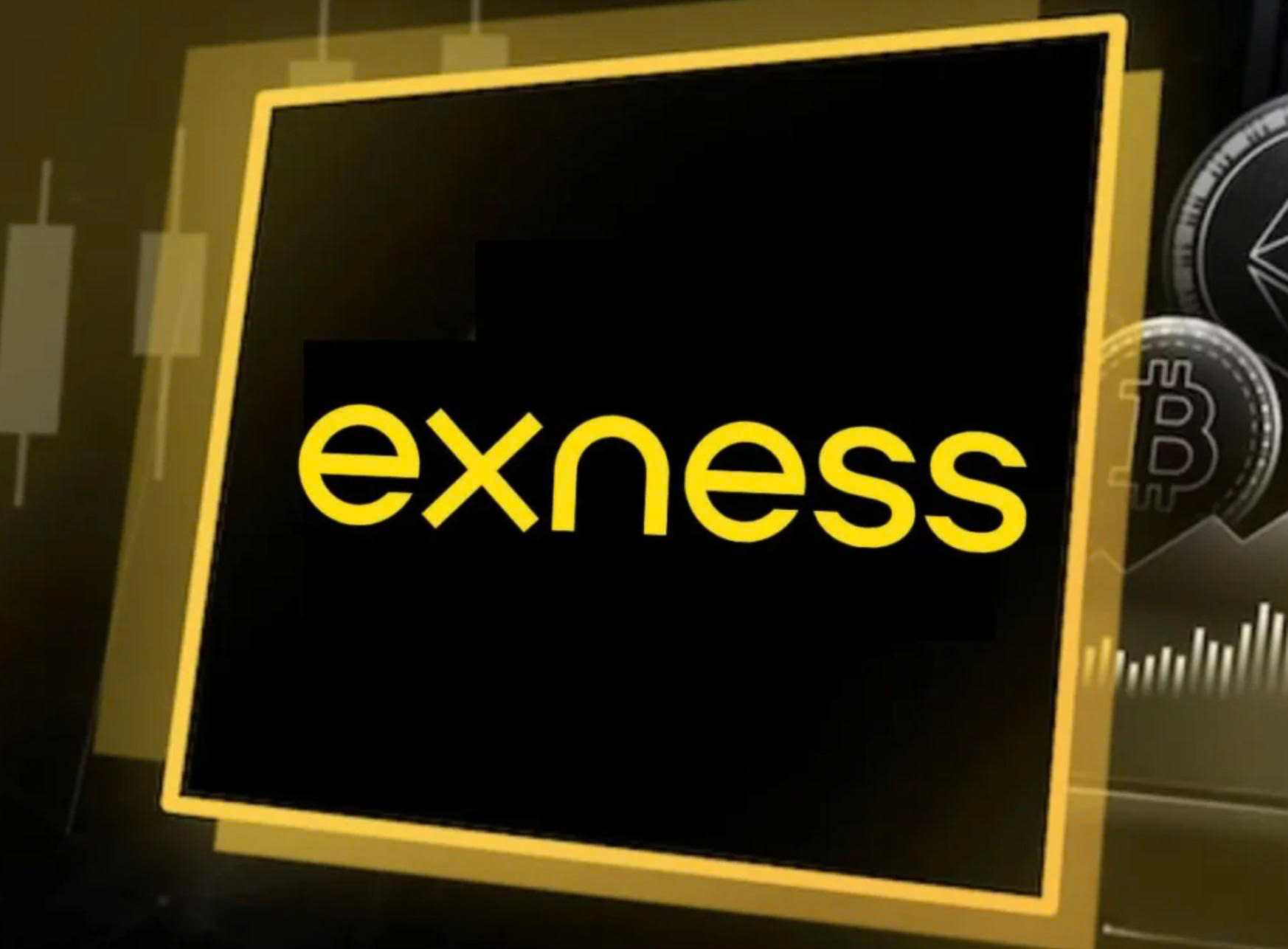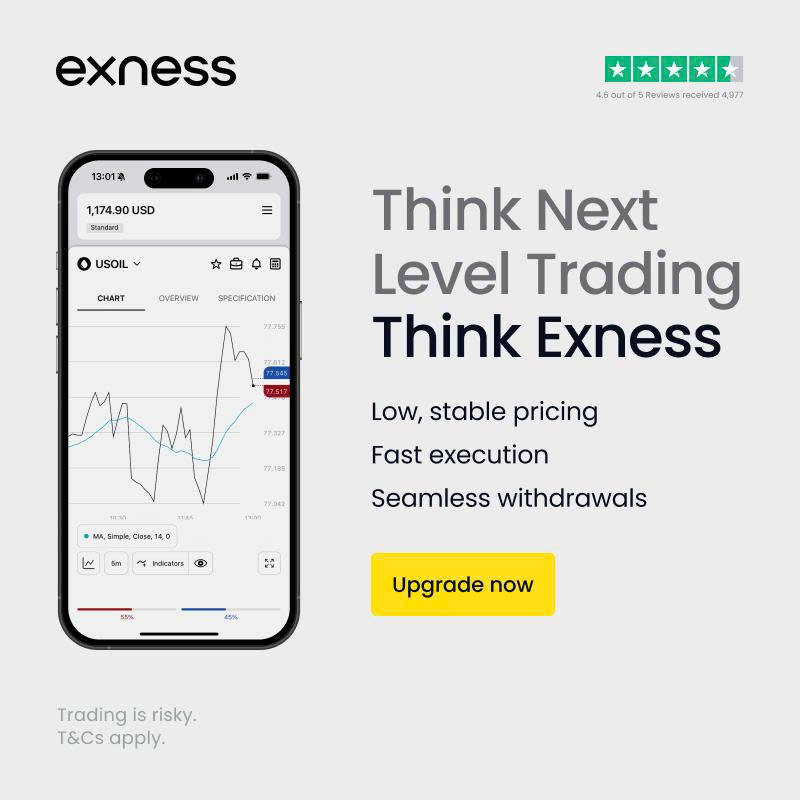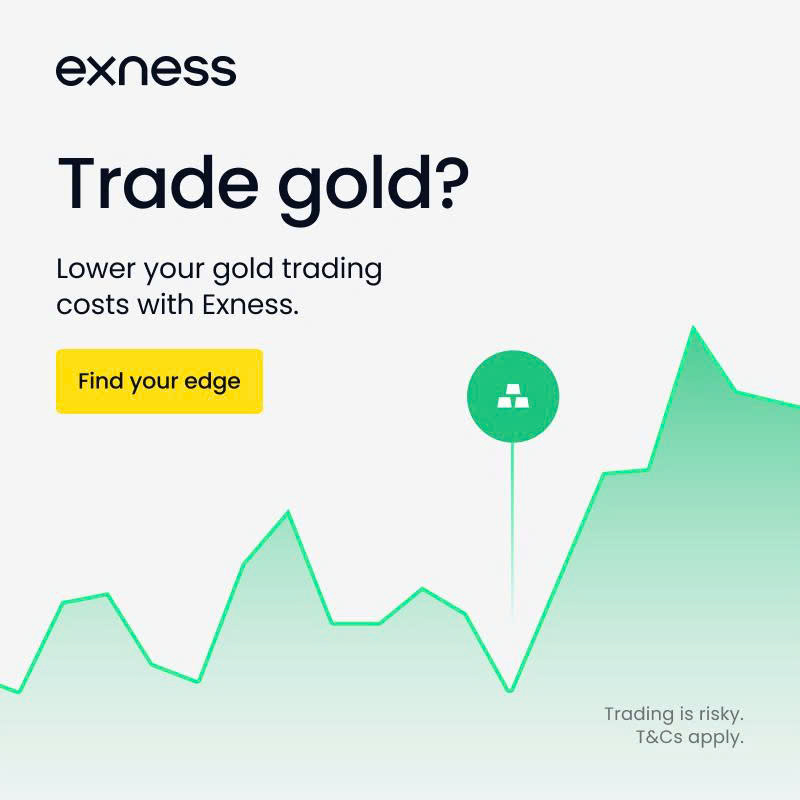
6 minute read
Exness vs Bybit Comparison: Which Trading Platform Should You Choose?
from Exness vs Bybit
Hey there, trader! So, you’re trying to decide between Exness vs Bybit for your trading adventures? I get it—picking the right platform can feel like choosing between pizza and tacos. Both are awesome, but they cater to different vibes. In this Exness vs Bybit comparison, I’ll break down everything you need to know—fees, features, security, and more—to help you figure out which platform suits your trading style. Let’s dive in!

✅ Trade with Exness now: Open An Account or Visit Brokers 👈
The Big Picture: Exness vs Bybit at a Glance
Right off the bat, let’s clear up what these platforms are about. Exness, founded in 2008, is a powerhouse in forex and CFD trading, offering over 90 currency pairs, commodities, and even some crypto CFDs. Bybit, launched in 2018, is a crypto-first platform specializing in derivatives like perpetual futures with up to 100x leverage. So, if forex is your jam, Exness might be calling your name. Crypto enthusiast? Bybit’s probably got your attention.
But it’s not that simple—each platform has unique strengths. Let’s compare them across key factors to see which one’s your perfect match.
1. Trading Instruments: What Can You Trade?
Exness: If variety is your thing, Exness delivers. You get access to over 220 CFD markets, including:
Forex: 90+ currency pairs with tight spreads (EUR/USD averages 1.0 pips).
Commodities: Gold, oil, and metals.
Crypto CFDs: Bitcoin, Ethereum, Litecoin, and more.
Indices and Stocks: Think S&P 500 or Apple CFDs.
Exness is a multi-asset playground, ideal if you want to diversify beyond crypto. Plus, their swap-free trading on crypto is a nice touch for long-term holders.
Bybit: Bybit is all about crypto. You can trade:
Spot Trading: 700+ cryptocurrencies, from Bitcoin to niche altcoins.
Derivatives: Perpetual and quarterly futures with up to 100x leverage.
Staking: Earn passive income by locking up assets like BTC or ETH.
Bybit’s focus is narrower but deeper for crypto traders. If you’re all-in on digital assets, their massive coin selection and advanced trading options are hard to beat.
Verdict: Exness wins for multi-asset trading; Bybit’s the go-to for crypto purists.
2. Fees: Where’s Your Money Going?
Nobody likes hidden fees, so let’s talk costs.
Exness:
Spreads: Super competitive, especially on forex. EUR/USD spreads average 1.0 pips on Standard accounts, dropping to 0.0 pips on Raw Spread accounts.
Commissions: Commission-free on Standard accounts; $3.5 per lot on Pro accounts.
Crypto Fees: Bitcoin CFDs cost as low as $24 per trade, cheaperrusader.com.
Withdrawals: No internal fees, and processing is often instant for verified users.
Exness is a budget-friendly choice, especially for forex traders, with transparent pricing and no inactivity fees.
Bybit:
Spot Trading Fees: Maker/taker fees of 0.1%/0.1% (or 0.075% if paying with BNB).
Futures Fees: As low as 0.02% for makers and 0.06% for takers.
Withdrawal Fees: Vary by asset (e.g., 0.0005 BTC for Bitcoin withdrawals).
Staking: No trading fees, but returns depend on lock-up periods.
Bybit’s fees are competitive in the crypto space, but withdrawal fees can add up if you’re moving assets frequently. High-volume traders (over $4B in 30-day volume) get lower fees, which is great for whales.
Verdict: Exness edges out for lower overall costs, especially for forex and smaller accounts. Bybit’s better for high-volume crypto traders.
3. Platforms and User Experience
Exness: Their proprietary Exness Terminal (web and mobile) is beginner-friendly, with clean navigation and real-time tools. They also support MetaTrader 4 and 5, which are industry standards for forex traders. The mobile app is slick, perfect for trading on the go, and their educational resources (webinars, tutorials) make it easy for newbies to get started.
Bybit: Bybit’s platform is a crypto trader’s dream—fast, intuitive, and packed with features like advanced charting, trading bots, and risk management tools. Their “Lite” app simplifies things for beginners, while the Bybit Learn portal offers guides on everything from staking to bear-market strategies. However, the full platform can feel overwhelming if you’re new to crypto derivatives.
Verdict: Exness is more beginner-friendly; Bybit shines for advanced crypto traders.

✅ Trade with Exness now: Open An Account or Visit Brokers 👈
4. Regulation and Security: Is Your Money Safe?
Safety first, right? Here’s how they stack up.
Exness: Highly regulated by seven global authorities, including Tier-1 regulators like the FCA (UK) and CySEC (Cyprus). They segregate client funds, offer negative balance protection, and publish monthly trading volume reports for transparency. With a 17-year track record and $4.5 trillion in monthly trades, they’re a trusted name.
Bybit: Less regulated, operating mainly under offshore licenses. They prioritize security with cold storage, two-factor authentication, and proof-of-reserves audits using Merkle Tree and zk-SNARKs. However, the lack of Tier-1 regulation might concern cautious traders, especially in jurisdictions with strict rules.
Verdict: Exness is the safer bet for regulation and trust. Bybit’s security is solid but lacks the same regulatory clout.
5. Leverage and Risk
Exness: Offers insanely high leverage—up to 1:2000 through their Seychelles entity. This can amplify profits but also risks. Great for pros who know what they’re doing, but beginners should tread carefully.
Bybit: Up to 100x leverage on futures, which is plenty for crypto traders. Their risk management tools (like stop-loss orders) help, but high leverage is a double-edged sword.
Verdict: Exness offers more leverage flexibility, but Bybit’s tools cater better to crypto-specific strategies.
6. Account Types and Accessibility
Exness:
Standard Account: No minimum deposit, commission-free.
Pro Accounts: $500 minimum, lower spreads for experienced traders.
Demo Account: Practice without risking real money.
Islamic Account: Swap-free for Muslim traders.
Exness’s low entry barriers make it accessible to all.
Bybit:
No Minimum Deposit: Great for beginners.
Unified Trading Account: Combines spot, futures, and margin trading.
Demo Account: Test strategies risk-free.
Staking Accounts: For passive income seekers.
Bybit’s all-in-one account is simple, but staking requires lock-up periods.
Verdict: Exness offers more account variety; Bybit’s unified account is streamlined for crypto.
7. Customer Support and Education
Exness: 24/7 support via live chat, email, and phone in multiple languages. Their webinars, tutorials, and market analysis from Trading Central are top-notch for learning and staying updated.
Bybit: 24/7 support with a responsive live chat. Bybit Learn and their demo platform are fantastic for crypto newbies, with guides on everything from MT4 trading to staking.
Verdict: Both are strong, but Exness has a slight edge for forex-focused education.
Who Should Choose Exness?
Exness is your pick if:
You want to trade forex, commodities, or a mix of assets.
You prioritize tight spreads and low fees.
Regulation and trust are non-negotiable.
You’re a beginner or pro looking for a user-friendly platform with robust tools.
Who Should Choose Bybit?
Bybit’s the one for you if:
Crypto is your main focus, especially derivatives or staking.
You want access to 700+ coins and advanced trading features.
You’re comfortable with less regulation for potentially higher rewards.
You’re a high-volume trader who can unlock lower fees.
Final Thoughts: Exness or Bybit?
So, Exness or Bybit? If you’re into forex or multi-asset trading with top-tier regulation, Exness is your go-to. Its low fees, user-friendly platform, and transparency make it a solid all-rounder. If crypto derivatives, staking, or a massive coin selection excite you, Bybit’s cutting-edge tech and crypto-first focus are unbeatable—though you’ll trade off some regulatory security.
✅ Trade with Exness now: Open An Account or Visit Brokers 👈
Read more:

